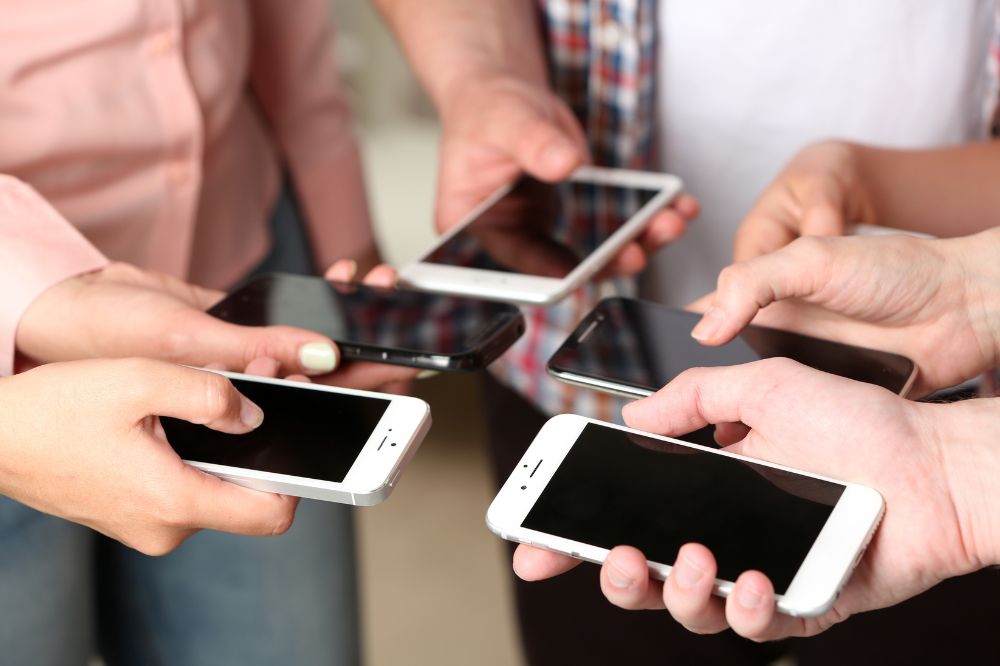Wales should be recycling more electronic devices

Mike Hedges – MS for Swansea East
Wales is one of the best recycling nations in the world but there are simple areas where we can improve especially with small electronic devices.
This discussion would not have taken place a hundred years ago, nearly everything was recycled, the only exception being ash from coal fires.
With the bin collectors in Swansea called ashmen and where they dumped it, Ashley Road. In the post second world war years, we became more and more a throwaway society.
Recycling has helped but we still have a substantial amount of waste not recycled and either dumped in land fill or incinerated. No metal should ever end up in landfill but unfortunately, some does.
Phones
Looking first at mobile phones. Copper is used for wiring in mobile phones. Tellurium is added to other metals to improve their strength and hardness and reduces corrosion.
Lithium is essential to the production of cathodes in lithium-ion batteries. Cobalt is important for rechargeable batteries, and a range of other electrical components.
Coating microscopic copper wires with cobalt makes microchips more reliable. Manganese is used in dry-cell batteries, manganese can make electronics more resilient.
Tungsten is a highly dense and durable metal, four times harder than titanium. It is used as a weight in a phone’s vibrator.
Lithium recycling involves recovering and reprocessing lithium-ion batteries to extract valuable materials such as lithium, cobalt, and nickel.
The process includes the following steps. Collecting and sorting used batteries based on their chemical composition.
Discharging and dismantling the batteries to separate components. Extracting lithium from brines or minerals.The price of lithium is dropping but this is no reason to not recycle.
Obligation
We should be building a circular economy that minimises or eliminates waste by returning lithium into the production cycle.
Rather than creating mobile phones, using them for a few years and putting them in a drawer and forgetting about them or worse sending them to landfill when we buy a new one, we need to recycle them.
We have an obligation not to lose track of where those precious metals in mobile phones are and have them recycled.
Assuming an average four-year life expectancy for a mobile phone which I believe is on the high side then starting in 2014 over half the mobile phones produced in the UK since 2014 will have been either scrapped or left in cupboards.
The metals mentioned previously could all be recycled with no new metals needed. We all know that is not the case. Is there anyone who has not got an old mobile phone in their house placed in a draw or cupboard. I hold my hand up, I used to.
A new mobile phone is bought as a Christmas present for a child. The information is taken off for the new one and the old one and then placed somewhere.
One simple action by Government is that when someone buys a new mobile phone then they must return their old mobile phone within 28 days of the purchase of the new phone.
This could be the start of recycling all electronic devices.
Computers
Turning to laptop computers we know in modern electronics, Silver is the most used of all the precious metals, followed by gold, then Palladium, Platinum, Rhodium, and Iridium.
Precious metals are used inside Computers:
-
- Gold in Printed Circuit Boards, Computer Chips (CPU) and connectors.
- Silver in Printed Circuit Boards, Computer Chips, keyboard membranes and capacitors.
- Platinum is used in Hard Drives and Circuit board components.
- Palladium is used in Hard Drives and Circuit board components.
- Copper is used in CPU heat sinks, wiring and cables, Printed Circuit Boards and Computer Chips.
- Nickel is used in Circuit board components.
- Also, Tantalum is used in Circuit board components.
- Cobalt is used in Hard Drives.
- Aluminium is used in Printed Circuit Boards, Computer Chips, Hard Drives and CPU heat sinks.
- Tin is used in Printed Circuit Boards and Computer Chips.
- Zinc is used in Printed Circuit Boards.
- Neodymium is used in Hard Drives.
Gold for example has been used in manufacturing electronic components for many years because it offers good electrical conductivity, is a good conductor of heat, and most importantly gold offers very high resistance to corrosion.
No metal should not be recycled. We need legislation to achieve this starting with mobile phones and other small electronic devices.
Support our Nation today
For the price of a cup of coffee a month you can help us create an independent, not-for-profit, national news service for the people of Wales, by the people of Wales.









OK, but legislate to force councils to make it easy for the public to recycle stuff. In Powys, we are about to have a booking a charging system imposed on us to visit the local recycling centre (in my case a 34 Mile round trip). If I am held up on my journey and therefore late it is assumed that I will be refused entry. It will normally also involve a special journey just to dump stuff. So, no way am I going to play that game; in the black bin it is likely to go. And before anyone says… Read more »
Councils should operate pop-up recycling facilities in every ward every month. It’s not appropriate to assume everyone has a car, and the “bulky item collection” service isn’t really intended for that box of old phones.
I haven’t seen in Wales, but many countries have electronic waste bins, similar to clothes bins for emeg salvation army
Interesting read and an important issue. The smartphone is a good example of the challenges posed by metal recovery- the recycled material value is less than 1.5 USD. Depending on scale of the recycling facility, it will probably cost 2-50 USD to recycle even half the materials inside a phone. So even the bigger international companies focus recycling only on 2-3 materials. Most waste ends up in developing nations sadly. At the moment, the best thing to do at end of life is keep using it- repair it or reuse it. But the market will change, recycling techniques will improve,… Read more »